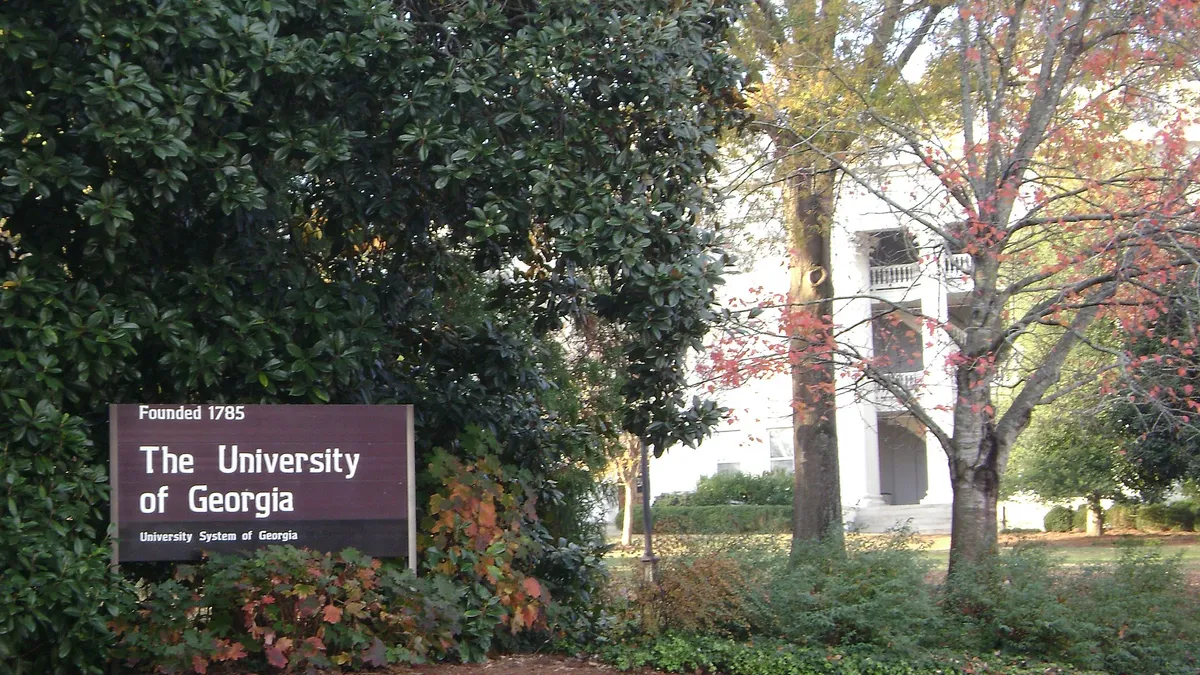UPDATE: Nov. 3, 2021: Teresa MacCartney, the acting chancellor of the University System of Georgia, sent a letter to the American Association of University Professors on Tuesday, defending recent policy changes that critics say undermine tenure.
MacCartney wrote to an AAUP official in response to a notice that the system was being investigated over the changes. "Due process is and will remain a core tenet" of policies governing post-tenure review processes, she wrote.
She added that the system has yet to release guidelines associated with the new policies that will outline "specific expectations around due process." She stressed faculty will have ongoing notice if their job performance is unsatisfactory and will have multiple opportunities to fix deficiencies.
Dive Brief:
- The American Association of University Professors will investigate the University System of Georgia after its regent board approved changes to tenure policies that the faculty group said strike against the prized concept of academic freedom.
- The Board of Regents greenlit the new rules this month, despite widespread faculty opposition. Critics say they weaken tenure protections by taking away power from faculty in post-tenure review processes and putting it in administrators' hands. Tenured professors will also be evaluated on a new metric of student success.
- AAUP could censure the Georgia system after its investigation, a mark that aims to publicly signal that an institution doesn't have adequate academic freedom and tenure.
Dive Insight:
A firestorm erupted across the system and nationally after proposed tenure changes were announced in the summer. Among them were that faculty could be fired, or have their tenure revoked or pay suspended, if they had unsatisfactory performance and failed to meet benchmarks in an improvement plan.
It was one of the latest instances in a string of perceived assaults on tenure at public institutions across the country. Governing boards have been accused of trying to block candidates who academics recommended for tenure.
Georgia's governing board approved the policies this month amid the torrential faculty backlash. Before the board signed off on them, the AAUP issued a statement threatening to investigate and possibly censure the system.
AAUP President Irene Mulvey at the time characterized the rules as "an attack on tenure and academic freedom."
The group formally authorized the investigation this week. An AAUP committee will review its findings and recommend whether to censure, and the organization's governing council will reach a final decision.
The University System of Georgia did not respond to a request for comment Thursday.
The practice of censuring institutions started in 1930. Currently, 56 institutions have the designation. Colleges can have censures removed if they demonstrate to the AAUP that conditions and the academic integrity of an institution have improved.
AAUP has said the pandemic further stressed shared governance at some institutions, arguing they used the crisis to shut down academic programs and lay off faculty in quick fashion.
In June, the group sanctioned six of eight colleges that it was investigating for flouting governance practices.














